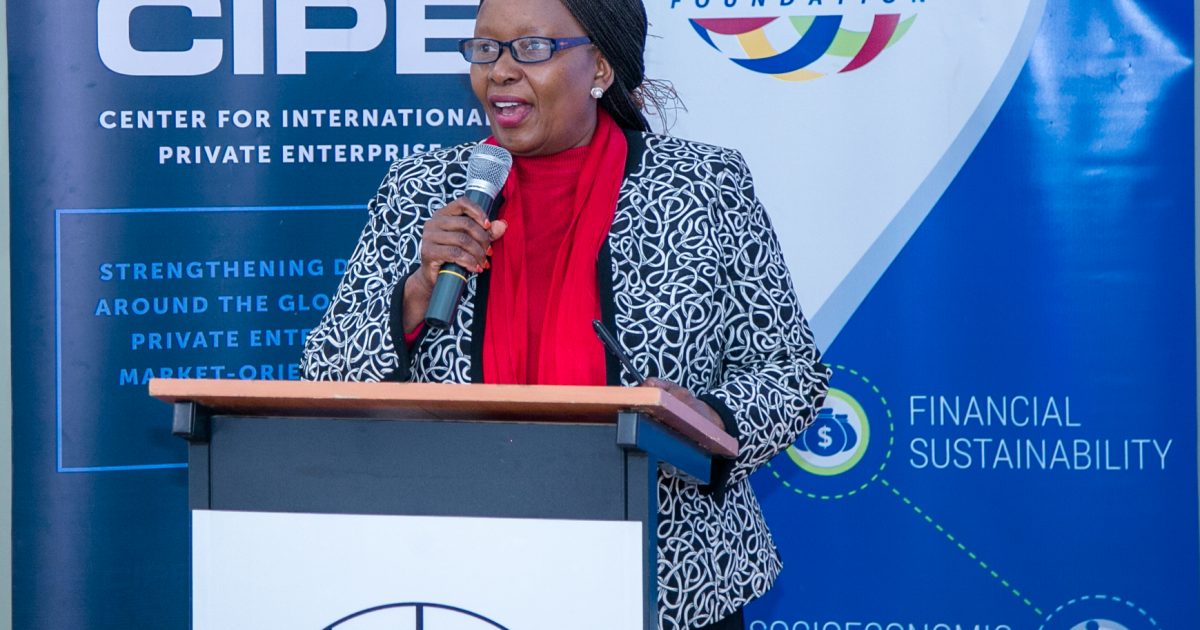The government, academia, and the private sector have been challenged to work together to address the policy and administrative hurdles experienced by Micro, Small and Medium Enterprises (MSMEs) in the digital space.
In a bid to bolster the role of Micro Small and Medium Enterprises (MSMEs) within Kenya’s rapidly evolving digital economy, the Centre for International Private Enterprise (CIPE), in partnership with the Kenya Private Sector Alliance (KEPSA) Foundation presented research findings of the MSME Digital Economy Survey which was launched in December 2022 as well as to offer policy recommendations in comparison with the government’s progress on the digital economy manifesto commitments and the ICT masterplan.
Speaking during the workshop on the digital economy dialogue hosted by CIPE and KEPSA Foundation, CIPE Kenya Country Director Ben Kiragu said that cybersecurity, stiff competition, and the cost of doing business are the primary challenges MSMEs face when trying to digitize their operations.
He said key stakeholders from the government, industry, and academia must strategically outline the roadmap to address these challenges that are impeding MSME integration into the digital landscape.
“Empowering MSMEs in the digital economy requires a targeted approach that addresses their unique challenges and needs. Without a clear focus on MSMEs, the broader policy dialogue on the digital economy risks leaving behind the very businesses that are essential to economic growth and prosperity,” Mr. Kiragu said.
Cybersecurity risk has been predominant during the post-COVID period due to the increased uptake of digital tools for payment and procurement of goods. The cost implications and awareness creation about cybersecurity make it difficult for MSMEs to fight against cyber threats.
The digital economy has become a significant driver of economic growth in Kenya, with projections indicating that it will contribute 9.24% of the country’s GDP by 2025. The country’s ICT sector has grown by an average of 10.8% annually since 2016, and Kenya is now one of Africa’s leading digital economies. The National ICT Policy aims to grow the sector’s contribution to the digital and traditional economies to 10% of GDP by 2030.

“The digital economy presents significant opportunities for economic inclusion and growth, particularly for SMEs. The partnership between the KEPSA Foundation and CIPE has been vital in accelerating digital growth in Kenya and ensuring the inclusion of private sector participation in the digital economy. As we continue to navigate the challenges presented by the digital economy, we must work together to ensure that it benefits everyone, particularly those in emerging economies,” KEPSA Foundation Executive Director Gloria Ndekei said.
However, there are challenges to overcome. Kenya faces a significant digital divide, with 44% of the urban population having access to the internet compared to 17% in rural areas. Widespread gaps in basic digital skills limit the wider usage and application of digital tools and services, while gaps in advanced digital skills limit business development.
“Our Ministry will collaborate with private sector players, development partners among other stakeholders in tapping into this distinction to bring together diverse perspectives, experiences and resources in an inclusive, sustainable and thriving digital economy,” Andrew Opiyo, Director, ICT at the Ministry of Information, Communications and The Digital Economy said.
By Hamdi Mohamud




